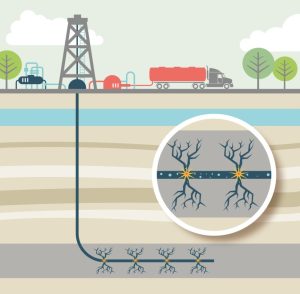What Is Fracking in Politics| Unveiling the Controversies
What Is Fracking in Politics
In the realm of energy production and environmental policy, few issues have garnered as much attention and controversy as hydraulic fracturing, commonly known as fracking. The political landscape is deeply intertwined with the fracking industry, igniting fierce debates that affect communities, economies, and the environment.
What is Fracking?
Fracking is a drilling method to extract natural gas and oil from deep underground by fracturing rock formations. It sparks debates due to economic benefits and environmental concerns. The battleground state of Pennsylvania relies on fracking, but its impacts are felt across the United States.
The Energy Revolution
The surge in fracking has transformed the energy landscape in countries like the United States. It has unlocked vast reserves of oil and natural gas, altering the geopolitics of energy. This newfound energy abundance has reduced reliance on foreign oil and shaped discussions on energy security. Also, read about What Are Politics
Environmental Concerns
Fracking’s environmental implications are at the heart of the political debate. Controversies revolve around issues such as water contamination, air pollution, and earthquakes linked to the injection of wastewater into disposal wells. The potential for long-term damage to ecosystems and public health is a subject of deep concern.
Local Communities
At the local level, fracking has significant economic and social consequences. It can boost local economies by creating jobs and generating revenue for communities. Simultaneously, it can disrupt the lives of residents through increased traffic, noise, and changes in the character of rural areas.
The Regulatory Landscape
The politics of fracking extends to the regulatory framework governing the industry. Policymakers grapple with striking a balance between promoting energy production and safeguarding the environment. The level of government involvement and the stringency of regulations vary widely, contributing to a patchwork of rules across regions.
Public Opinion
Public perception of fracking is divided. Some see it as a bridge to cleaner energy and economic prosperity, while others view it as a threat to the environment and public health. Understanding public sentiment is critical for policymakers navigating this complex terrain.
Political Divides and Debates
Fracking swiftly emerged as a contentious topic in political discussions, sparking debates primarily concerning the delicate balance between energy demands, economic expansion, and environmental safeguarding. These discussions typically cleaved along party lines, with Democrats advocating stricter regulations and environmental protection, while Republicans emphasized the economic advantages and energy security offered by fracking.
Responses on the Policy Front
The response to fracking displayed a diversity of approaches, influenced by jurisdictional differences and the prevailing political ideologies. Some states opted for moratoriums or outright bans on fracking to address ecological apprehensions, while others saw it as an avenue for economic growth. At the national level, the stance on fracking fluctuated with changes in presidential administrations. The Obama Administration, for instance, aimed to heighten regulations governing fracking on federal lands, while the Trump Administration favored deregulation and the promotion of domestic energy production, including fracking. Discover more about What Woke Mean in Politics

The Role of Lobbying and Industry Influence
The energy industry wields substantial political influence, with lobbying efforts shaping energy policies and regulations. Understanding the role of industry in politics is essential to comprehending the trajectory of fracking debates.
The Global Perspective
Fracking’s political dynamics are not limited to a single country. It is a global issue, with countries like the United Kingdom, Canada, and Australia also contending with the complexities of fracking’s role in their energy strategies.
The Economic Impact
Economic considerations play a pivotal role in the fracking debate. The potential for job creation, energy affordability, and economic growth are often cited as benefits. However, the long-term economic stability of regions dependent on fracking is also a subject of concern.
Case Studies and Controversies
To shed light on the multifaceted politics of fracking, we’ll delve into real-world case studies and controversies. From the shale gas boom in Pennsylvania to the bans on fracking in New York and Maryland, these examples illuminate the varied political landscapes surrounding this contentious practice.
The Path Forward
As we explore the controversies and intricacies of fracking in politics, we’ll also examine potential paths forward. This includes discussing alternatives to fossil fuels, the potential for more sustainable drilling practices, and the role of innovation in addressing the challenges posed by fracking.
Conclusion
Fracking in politics is a nuanced and contentious topic, touching on energy, environment, economics, and public health. It reflects the complex and often conflicting interests that policymakers must navigate. This exploration aims to provide a comprehensive understanding of the political landscape surrounding fracking and its implications for our world. Whether you’re an advocate, critic, or someone seeking balanced insight, the politics of fracking continue to shape our future in profound ways.
FAQs
What is fracking?
Fracking, short for hydraulic fracturing, is a method of extracting natural gas and oil from deep underground by injecting a high-pressure fluid mixture into the Earth’s crust to fracture rock formations.
Why is fracking a political issue?
Fracking is a political issue due to its economic and environmental impacts. It’s debated because of its potential for energy independence and job creation, as well as concerns about environmental and health consequences.
Where is fracking practiced in the United States?
Fracking occurs in over a dozen states, including Pennsylvania, Ohio, Texas, Colorado, and California.
What are the key political debates surrounding fracking?
Political debates about fracking typically revolve around balancing economic benefits and environmental protection. Democrats often advocate for stricter regulations, while Republicans emphasize energy security and economic growth.
How does fracking impact local communities and the nation as a whole?
Fracking can impact local communities economically and socially, creating jobs and revenue but also causing disruptions. Its effects extend to the national level, influencing energy security and environmental policy.
